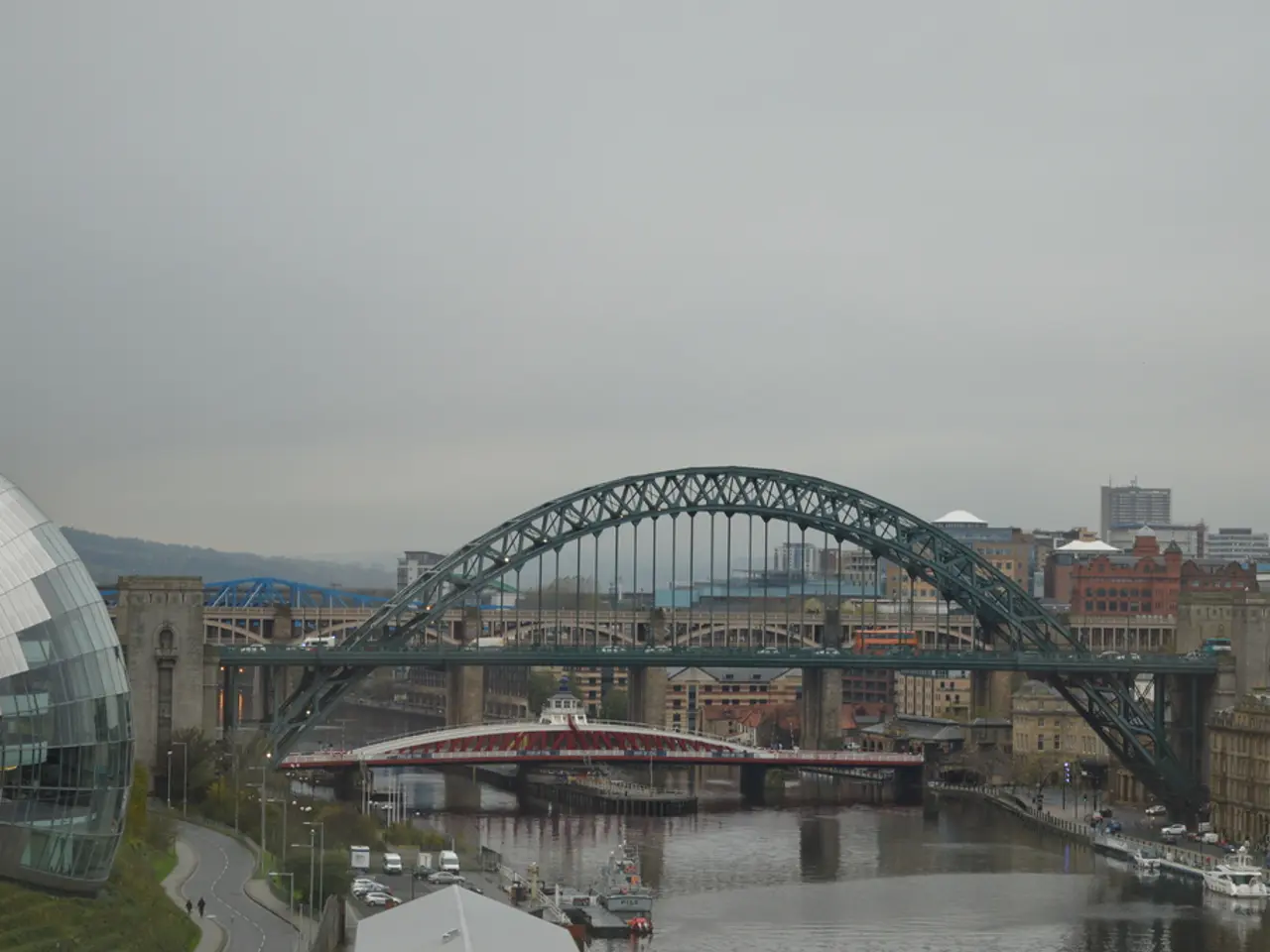EU Economy Experiences Stirring of Renewed Progress Post Years of Sluggish Expansion
The European Union's economies are showing signs of steady improvement this year, with growth expected to pick up in the coming quarters. This optimistic outlook is partly due to Germany, the EU's biggest economy, embarking on a $1.2 trillion spending spree focused on defense and infrastructure. This move is expected to boost the broader EU economy.
However, the third quarter may see a dampening of growth due to the implementation of higher tariffs. The European Union, despite its efforts towards a capital market union to make European capital markets deeper and more liquid, faces this setback.
The EU's commitment to deepening integration and addressing fragmentation, with positive sentiment towards the common currency and the EU at an all-time high among Europeans, offers a glimmer of hope. Yet, challenges remain, with debt continuing to be a problem for some European countries, particularly France, which is facing a budget crisis.
Debt servicing ratios are healthy across Europe, except in France, where the political crisis could add uncertainty to the economy and delay fiscal consolidation, potentially worsening France's debt trajectory. The rise of populist parties in Europe also threatens to slow down or derail the EU's plans for further integration.
Despite these challenges, the private sector's debt load in Europe has fallen from a peak of 110% of GDP to 95%, the lowest level in 17 years. This improvement, coupled with households and corporations in Europe being flush with cash, bodes well for the continent's economic future.
The European banking sector has also made significant strides. European banks have rebuilt their balance sheets, with non-performing loans no longer a threat, capital and liquidity ratios robust, and profitability improved. Banks in Europe account for about 70% of firms' borrowing, making a healthier banking sector beneficial for European growth and capital spending.
The eurozone grew at a pace of 0.1% in the second quarter of the year, a modest but positive growth. However, the region has had its fair share of struggles, including during the fiscal crisis in Greece a decade ago and more recently, the pandemic, war, and inflation.
The political crisis in France, with President Emmanuel Macron appointing a fifth prime minister in less than two years, has caused investors to question the country's ability to rein in its ballooning budget deficit. This uncertainty could potentially impact the broader European economy.
In conclusion, while the European economy is showing signs of recovery, it continues to face numerous challenges. The implementation of the German spending spree, the EU's commitment to further integration, and the health of the European banking sector offer promising prospects. However, the impact of higher tariffs, the political crisis in France, and the rise of populist parties pose significant threats. Only time will tell how these factors will shape the European economy in the coming quarters.
Read also:
- chaos unveiled on Clowning Street: week 63's antics from 'Two-Tier Keir' and his chaotic Labour Circus
- Skechers Debuts First American Stores Focused on Athletic Footwear Performance
- Budget discrepancy jeopardizes highway projects' financial support
- Racing ahead in Renewable Energy Dominance: Changzhou, Jiangsu Pushes for Worldwide Renewable Energy Ascendancy




